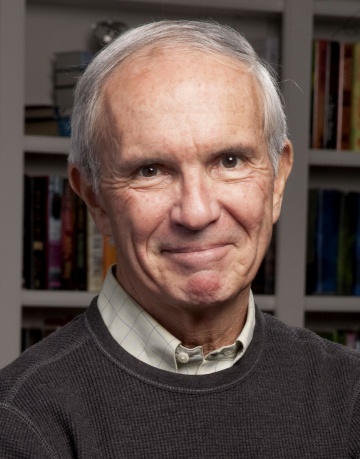Columbia College | Columbia University in the City of New York
Take Five with Tom Lippman ’61

Lippman has authored numerous magazine articles, book reviews and op-ed columns about Mideast affairs and seven books about the Middle East and Islam. His newest book, Crude Oil, Crude Money: Aristotle Onassis, Saudi Arabia, and the CIA, was released in May.
He has lectured on Gulf regional affairs at the U.S. Air Force Special Operations School and on Middle Eastern affairs at the National Defense University, as well as at the State Department’s Foreign Service Institute and the Brookings Institution. Lippman has made numerous television appearances and has consulted for film producers, the U.S. armed forces, the National Counterterrorism Center and corporations that do business in the Gulf.
He is an adjunct scholar at the Middle East Institute in Washington, D.C., and was an Edward R. Murrow Fellow at the Council on Foreign Relations.
What were you like when you arrived at Columbia?
When my parents dropped me off for Orientation, I was still six weeks short of my 17th birthday. Because I was so young, and because I had attended an all-male Catholic high school, I was socially clueless. I also had no idea what I would be up against: Ever since first grade, at schools in California and New York, I had been at or near the top of my class. Now, suddenly I was surrounded by people just as smart as I was, if not smarter. It was unsettling. I was also unsettled because all through elementary and high school the teachers had told me what to do and what to think. Now nobody was telling me what to do or what to think. I had a schedule that said to go to this or that room in Hamilton on this or that day, but I had never been in an environment where I was expected and encouraged to engage in extended discussion of the subject at hand, to question what we were reading or hearing, to assume that there was more than one way to think about truth. That was the point, of course — to learn how to think, not what to think — but it took me quite a while to figure it out.
What do you remember about your first-year living situation?
I was a commuter; I lived with my parents in central Queens. A New York State scholarship covered much of my tuition, but I couldn’t afford to live on campus. In those days, before the construction of Carman and the acquisition of McBain, the College didn’t have dorm space for all of us anyway, so commuting was common. In the second semester of my first year, I joined a fraternity, so at least I had a home away from home on campus, a point of reference. The big change came when a fraternity brother and I heard a speech by the great Dean Henry Coleman ’46 saying Columbia wanted to create a fully residential community. We took him at his word, went to see him and asked for enough scholarship money to move onto campus — and he gave it to us! We moved into the fraternity house, on 114th street. It changed our lives. Black coffee at Rikers at 1 a.m.! Who knew?
What Core class or experience do you most remember, and why?
I didn’t get much out of Lit Hum because I was the kind of nerd who had already read most of it in high school; I had even read the Iliad in Greek. What I appreciated was the new world of knowledge and experience opened to me by Music Hum. My parents had exposed me to Beethoven and Brahms, but I knew nothing of the structure of music, of sonata form, of the varieties of orchestration. And opera! My parents never listened to opera; suddenly I was overpowered by Tristan und Isolde and Wozzeck. At my advanced age, I now find Wagner boring, but at least I know enough to know why, and we’ll always have Tosca.
Did you have a favorite spot on campus, and what did you like about it?
The Spectator newsroom, which at the time was in John Jay. I had been fascinated by newspapers since I was 10, and working at Spec confirmed my desire to make a career of it. I wrote sports and news, went to the print shop to supervise the press run, organized the annual Blue Pencil Dinner and hung out with like-minded guys. Spectator even sent me on my first airplane ride — on a Mohawk Airlines DC-3 to Ithaca, to cover a basketball game against Cornell.
What, if anything, about your College experience would you do over?
Study harder, read more, take full advantage of the rich environment around me. I had some great teachers — Gilbert Highet, Peter Gay GSAS’51, Frederick Dupee — but I’m still embarrassed that I never took a course with Jim Shenton ’49, GSAS’54 or Moses Hadas GSAS 1930. And I never read The Brothers Karamazov when it was assigned in Senior Seminar. With the distractions of commuting, Spectator, a weekend job and a girlfriend at Hunter College, I managed to make it through four years without getting an A. There was so much more I could have learned.
More “Take Five”
- 1 of 32
- ›

